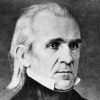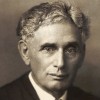For my part, the thing that I would wish to obtain from money would be leisure with security. But what the typical modern man desires to get with it is more money, with a view to ostentation, splendour, and the outshining of those who have hitherto been his equals.
Bertrand Russell (1872-1970) English mathematician and philosopher
Conquest of Happiness, Part 1, ch. 3 “Competition” (1930)
(Source)
Quotations about:
leisure
Note not all quotations have been tagged, so Search may find additional quotes on this topic.
Don’t say “When I have time I will learn,” lest you never have time.
[וְאַל תֹּאמַר לִכְשֶׁאִפָּנֶה אֶשְׁנֶה, שֶׁמָּא לֹא תִפָּנֶה:]
Hillel (1st C. BC-1st C. AD) Jewish sage, rabbi [הלל]
Mishna, Seder Nezikin [Order of Damages], Pirkei Avot [Chapters of the Fathers] 2:4
(Source)
(Source (Hebrew)). Alternate translations:Say not, When I have leisure I will study; perchance thou mayest not have leisure.
[tr. Taylor (1897)]Say not: ‘when I shall have leisure I shall study;’ perhaps you will not have leisure.
[tr. Gorfinkle (1913)]Say not: ‘when I shall have leisure I shall study;’ perhaps you will not have leisure.
[tr. Kulp]Do not say: When I can free myself [of my affairs] I shall learn (Torah); perhaps you will not free yourself.
[tr. Shraga Silverstein]Do not say, "When I will be available I will study [Torah]," lest you never become available.
[Open Mishnah]Do not say "When I have leisure, I will study," perhaps you will not have leisure.
[Source]Say not, "When I have free time I shall study"; for you may perhaps never have any free time.
Half our life is spent trying to find something to do with the time we have rushed through life trying to save.
He who without necessity embarks
In many matters, is a fool for slighting
The obvious blessings of a tranquil life.[ὅστις δὲ πράσσει πολλὰ µὴ πράσσειν παρόν,
µῶρος, παρὸν ζῆν ἡδέως ἀπράγµονα.]Euripides (485?-406? BC) Greek tragic dramatist
Antiope [Αντιοπη], frag. 193 (TGF, Kannicht) [Amphion] (c. 410 BC) [tr. Wodhall (1809)]
(Source)
Barnes fragment 104, Musgrave 25. (Source (Greek)). Alternate translation:Whoever is very active when he may be inactive, is a moron,
when he may live pleasantly keeping clear from politics.
[tr. Will (2015)]Whoever is overactive when he could relax
is foolish, for he misses out on a pleasant life.
[Source]
Efficiency is a thief of time when it leaves no leisure.
Marcelene Cox (1900-1998) American writer, columnist, aphorist
“Ask Any Woman” column, Ladies’ Home Journal (1949-02)
(Source)
In short, the contradiction in the old defense of class stratification is that it defends leisure for the leisure class, but not for the underclass. With reference to the underclass, leisure is said to destroy the incentive to work, leads to slothfulness and self-indulgence, and retards cognitive and moral development. When applied to the leisure class, the concept evokes an image of Plato and Aristotle, whose leisure was based on slave labor, creating the intellectual foundations of Western civilization; or patrician slave-owners like Washington and Jefferson laying the foundations of American civilization; or creative aristocrats like Count Leo Tolstoy or Bertrand, Earl Russell; or, even closer to home, of our own sons and daughters (or of ourselves, when we were young adults) being freed from the stultifying tasks of earning a living until well into our adult years so that we could study in expensive universities to gain specialized knowledge and skills.
James Gilligan (b. c. 1936) American psychiatrist and author
Preventing Violence, ch. 5 (2001)
(Source)
Happiness is thought to imply leisure; for we toil in order that we may have leisure, as we make war in order that we may enjoy peace.
[δοκεῖ τε ἡ εὐδαιμονία ἐν τῇ σχολῇ εἶναι, ἀσχολούμεθα γὰρ ἵνα σχολάζωμεν καὶ πολεμοῦμεν ἵν᾽ εἰρήνην ἄγωμεν.]
Aristotle (384-322 BC) Greek philosopher
Nicomachean Ethics [Ἠθικὰ Νικομάχεια], Book 10, ch. 7 (10.7) / 1177b.4 (c. 325 BC) [tr. Peters (1893), 10.7.6]
(Source)
(Source (Greek)). Alternate translations:Happiness is thought to stand in perfect rest; for we toil that we may rest, and war that we may be at peace.
[tr. Chase (1847), ch. 6]It would seem that happiness is the very antithesis of a busy life, in that it is compatible with perfect leisures. And it is with such leisure in view that a busy life is always led, exactly as war is only waged for the sake of ultimate peace.
[tr. Williams (1869)]The end of labor is to gain leisure.
[in Ballou, Treasury of Thought (1872)]Happiness is thought to depend on leisure; for we are busy that we may have leisure, and make war that we may live in peace.
[tr. Ross (1908)]Happiness is thought to involve leisure; for we do business in order that we may have leisure, and carry on war in order that we may have peace.
[tr. Rackham (1934)]Happiness seems to reside in leisure, since we do unleisured things in order to be at leisure, and wage war in order to live in peace.
[tr. Reeve (1948)]Happiness is thought to depend on leisure; for we toil for the sake of leisurely activity, and we are at war for the sake of peaceful activity.
[tr. Apostle (1975)]Happiness seems to depend on leisure, because we work to have leisure, and wage war to live in peace.
[tr. Crisp (2000)][Because], happiness seems to reside in leisure, we labor [sacrifice leisure] so that we may have leisure.
[tr. @sentantiq (2018)]
I attended to some of the business on my table to-day. Many matters of minor importance and of detail remain on my table to be attended to. The public have no idea of the constant accumulation of business requiring the President’s attention. No President who performs his duties faithfully and conscientiously can have any leisure. If he entrusts the details and smaller matters to subordinates constant errors will occur. I prefer to supervise the whole operations of the government myself rather than entrust the public business to subordinates, and this makes my duties very great.
James K. Polk (1795-1849) American lawyer, politician, US President (1845-1849)
Diary (1848-12-29)
(Source)
If you have a garden in your library, we shall have all we want.
[Si hortum in bibliotheca habes, deerit nihil.]Marcus Tullius Cicero (106-43 BC) Roman orator, statesman, philosopher
Epistulae ad Familiares [Letters to Friends], Book 9, Letter 4, sec. 1 (9.4.1), to Marcus Terentius Varro (46 BC) [tr. Williams (Loeb) (1928)]
(Source)
In context, this is about Cicero discussing visiting Varro, and that he'll be happy to do so if the latter has a garden and a library, either to provide for body (vegetables) and mind, or else a garden library to have a pleasant place to think and talk during his visit.
The phrase, out of context and in more popular usage, changes the pronouns a bit, and is usually presented as a broad suggestion that all a person needs at their house to meet their mental and emotional needs is a garden and a library, e.g., the ubiquitous "If you have a garden and a library, you have everything you need."
(Source (Latin)). Alternate translations:Let there be a garden in your Librarie, it is no matter for the rest.
[tr. Webbe (1620)]As your library is situated in your garden, I shall want nothing to complete my two favorite amusements; reading and walking.
[tr. Melmoth (1753), 8.14]If you have a garden in your library, everything will be complete.
[tr. Shuckburgh (1899), # 464]If you have a kitchen garden in your library we shall lack for nothing.
[tr. Shackleton Bailey (1978), # 180]If you have a garden in your library, you’ve got it all.
[tr. @sentantiq (2011)]
That which is most excellent, and is most to be desired by all happy, honest and healthy-minded men, is dignified leisure.
[Id quod est praestantissimum, maximeque optabile omnibus sanis et bonis et beatis, cum dignitate otium.]
Marcus Tullius Cicero (106-43 BC) Roman orator, statesman, philosopher
Pro Publio Sestio, ch. 45, sec. 98
Alt. trans.:
- "That which stands first, and is most to be desired by all happy, honest, and healthy-minded men, is ease with dignity." [tr. Source)]
- "The thing that is the most outstanding, and chiefly to be desired by all healthy and good and well-off persons, is leisure with honor." [Source]
- "What is desired the most, by those who are healthy, good, and blessed, is leisure with honor." [Source]
- "That which is most excellent and most desirable to all men in their senses, and to all good and happy men, -- ease conjoined with duty." [Source]
- "They are the finest, noblest aims of all men of wisdom, integrity, and substance -- civil peace for Rome and honor for those who deserve it." [tr. Baldwin & Lacey (1978), adapted]
But I think a life of raising prize cattle, going shooting two or three times a year, fishing in the summer, and interspersing the whole thing with some golf and bridge — and whenever I felt like talking or writing, doing it with abandon and with no sense of responsibility whatsoever — maybe such a life wouldn’t be so bad.
Undoubtedly “a full dinner pail” is a great achievement as compared with an empty one, but no people ever did or can attain a worthy civilization by the satisfaction merely of material needs, however high these needs are raised. The American standard of living demands not only a high minimum wage, but a high minimum of leisure, because we must meet also needs other than material ones.
Louis Brandeis (1856-1941) American lawyer, activist, Supreme Court Justice (1916-39)
“Hours of Labor,” speech, Civic Federation of New England (11 Jan 1906)
(Source)
Reprinted in his Business -- A Profession (1914).
A Life of Leisure and a Life of Laziness are two things.
Thomas Fuller (1654-1734) English physician, preacher, aphorist, writer
Gnomologia: Adages and Proverbs (compiler), # 240 (1732)
(Source)
Your job today tells me nothing of your future — your use of your leisure today tells me just what your tomorrow will be.
Robert H. Jackson (1892-1954) US Supreme Court Justice (1941-54), lawyer, jurist, politician
Speech, Building Dedication, Jamestown High School, New York (1935-11-15)
(Source)
Quoted in Eugene Gerhart, America's Advocate: Robert H. Jackson, ch. 24 (1958).
Most people, when they are left free to fill their own time according to their choice are at a loss to think of anything sufficiently pleasant to be worth doing. And whatever they decide on, they are troubled by the feeling that something else would have been pleasanter. The ability to fill leisure intelligently is the last product of civilization, and at present very few people have reached this level.
Bertrand Russell (1872-1970) English mathematician and philosopher
Conquest of Happiness, Part 2, ch. 14 “Work” (1930)
(Source)
Leisure is the mother of Philosophy; and Common-wealth, the mother of Peace, and Leisure: Where first were great and flourishing Cities, there was first the study of Philosophy.
This world is a place of business. What an infinite bustle! I am awaked almost every night by the panting of the locomotive. It interrupts my dreams. There is no sabbath. It would be glorious to see mankind at leisure for once. It is nothing but work, work, work. I cannot easily buy a blank-book to write thoughts in; they are commonly ruled for dollars and cents. An Irishman, seeing me making a minute in the fields, took it for granted that I was calculating my wages. If a man was tossed out of a window when an infant, and so made a cripple for life, or scared out of his wits by the Indians, it is regretted chiefly because he was thus incapacitated for — business! I think that there is nothing, not even crime, more opposed to poetry, to philosophy, ay, to life itself, than this incessant business.
Henry David Thoreau (1817-1862) American philosopher and writer
Essay (1863-10), “Life without Principle,” Atlantic Monthly, No. 72
(Source)
Based his lecture (1854-12-06) "What Shall It Profit?" Railroad Hall, Providence, Rhode Island. He had edited it for publication before his death, and it was published posthumously.















